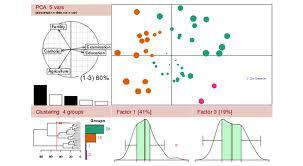 Datanami interviews Revolution Analytics’ Bill Jacobs about the upcoming Revolution R Enterprise 7, which will be available later this year.
Datanami interviews Revolution Analytics’ Bill Jacobs about the upcoming Revolution R Enterprise 7, which will be available later this year.
 Datanami interviews Revolution Analytics’ Bill Jacobs about the upcoming Revolution R Enterprise 7, which will be available later this year. A key feature of this release is that that the big-data predictive analytics R functions in the ScaleR package will run on data situated in a Hadoop cluster, and use the parallel computational power of the Hadoop nodes for the work:
Datanami interviews Revolution Analytics’ Bill Jacobs about the upcoming Revolution R Enterprise 7, which will be available later this year. A key feature of this release is that that the big-data predictive analytics R functions in the ScaleR package will run on data situated in a Hadoop cluster, and use the parallel computational power of the Hadoop nodes for the work:
This will open up new big data opportunities for the population of 2 million R programmers around the world, and allow them to use their skills against Hadoop-based data, without needing to know Java, Python, MapReduce, or how to write parallel algorithms. (They will, of course, need the package from Revolution Analytics to enable this.)
The title of the article is Putting the ‘R’ into Hadoop, but while there’s no letter ‘R’ in Hadoop, there is in both Cloudera and Hortonworks, both of which will be supported platforms for the in-Hadoop capabilities of Revolution R Enterprise. You can learn more about the specific capabilities of each platform in two webinars later this month.
Tuesday, September 24: The Modern Data Architecture for Predictive Analytics with Revolution Analytics and Hortonworks Data Platform
Hortonworks and Revolution Analytics have teamed up to bring the predictive analytics power of R to Hortonworks Data Platform. Hadoop, being a disruptive data processing framework, has made a large impact in the data ecosystems of today. Enabling business users to translate existing skills to Hadoop is necessary to encourage the adoption and allow businesses to get value out of their Hadoop investment quickly. R, being a prolific and rapidly growing data analysis language, now has a place in the Hadoop ecosystem.
Thursday, October 3: R+Hadoop – Ask Bigger (and New) Questions and Get Better, Faster Answers
R+Hadoop – Ask Bigger (and New) Questions and Get Better, Faster Answers The business cases for Hadoop can be made on the tremendous operational cost savings that it affords. But why stop there? The integration of R-powered analytics in Hadoop presents a totally new value proposition. Organizations can write R code and deploy it natively in Hadoop without data movement or the need to write their own MapReduce. Bringing R-powered predictive analytics into Hadoop will accelerate Hadoop’s value to organizations by allowing them to break through performance and scalability challenges and solve new analytic problems. Use all the data in Hadoop to discover more, grow more quickly, and operate more efficiently. Ask bigger questions. Ask new questions. Get better, faster results and share them.
You can register for both webinars (with access to both the live presentation and the archived slides and replay) by following the links in the webinar titles above.





